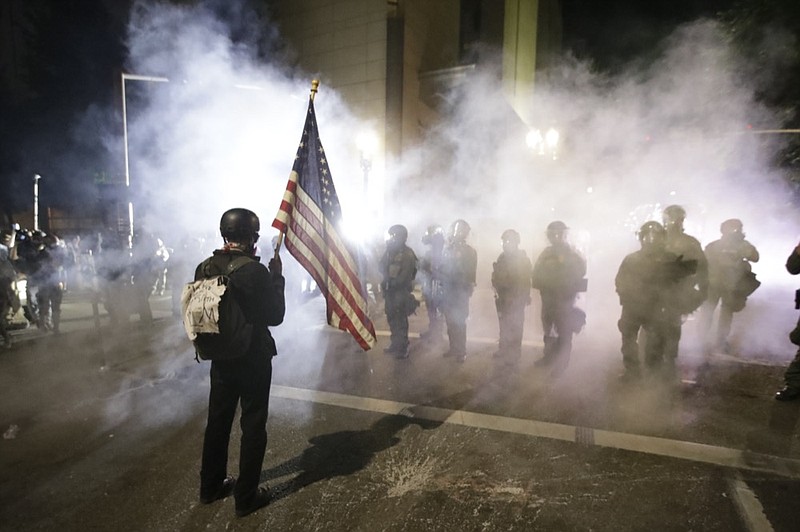"How does it become a man to behave toward this American government to-day?" This is a question that Henry David Thoreau asked in 1848 as he considered his relationship to an administration he thoroughly detested.
The administration was President James K. Polk's, and the immediate cause of Thoreau's discontent was the Mexican War, an illegal land-grab that moved Ulysses S. Grant to ponder whether there was ever "a more wicked war."
Thoreau's opposition to the war was backgrounded by his larger complaint about the federal government in 1848, its toleration of slavery: "I cannot for an instant recognize that political organization as 'my' government which is the 'slave's' government also."
So, Thoreau mused, what kind of a relationship should an honorable, enlightened citizen have with a corrupt government?
I thought of Thoreau's dilemma recently when I ran into a friend, an avid Trump supporter. Unprompted, he said that he had never heard of John Lewis. But that didn't stop him from asserting that Lewis was a do-nothing legislator who accomplished nothing during his 17 terms in the House of Representatives.
I didn't point out that Lewis sponsored or co-sponsored more than 8,500 bills during his long tenure, but I asked my friend if he would at least give Lewis credit for the courage it took to defy the social norms and the laws of a segregated South. Would we have had the courage to march across the Edmund Pettus Bridge into a line of well-armed state troopers?
My friend wasn't having it. No, there are proper ways to protest, and Lewis didn't have to break the law to make himself heard.
I'm not fond of the term "white privilege." But there is something that I'll call "white naivete," which makes it easy for privileged white people to imagine that the same channels of objection to an unsatisfactory government that are open to them would be open to a Black kid from Alabama in the 1960s.
My friend has equal contempt for the protesters who have been demonstrating since the death of George Floyd. He dismisses them as anarchists, looters and criminals.
For someone committed to the status quo, this is a convenient misunderstanding. But it ignores the fact that the vast majority of protesters are peaceful and that they are not only exercising a constitutional right but, according to Thoreau, a moral obligation.
Very few defend the looting and vandalism that inevitably accompany otherwise peaceful protests. But looting and vandalism are a sideshow that, unfortunately, provides an opportunity for people like my Trump-loving friend to dismiss the larger, righteous protest.
And it is righteous.
Some of the discontent that drove the original protests has evolved into justified anger against the federal government. If you are determined to forgive Trump for his defilements of decency and democracy, you should probably stop reading now. But if our democracy survives, history will look back on him as one of our worst presidents.
His administration has been characterized by cruelty, ineptitude, self-dealing, chaos and vulgarity. His greatest failure will probably be his abysmal bungling of a national response to Pandemic 2020
How should an enlightened American respond to an inept, corrupt government? John Brown led an attack on the federal armory in Harpers Ferry in 1859 in an attempt to free the slaves. Thoreau refused to pay a minor tax and spent a night in jail. John Lewis was jailed 40 times and had his skull fractured by a state trooper's baton.
Thoreau's message is that sometimes it's righteous to break the law in order to break the bad policies of a bad administration. Sometimes it's the only way to be heard.
Tribune Content Agency
